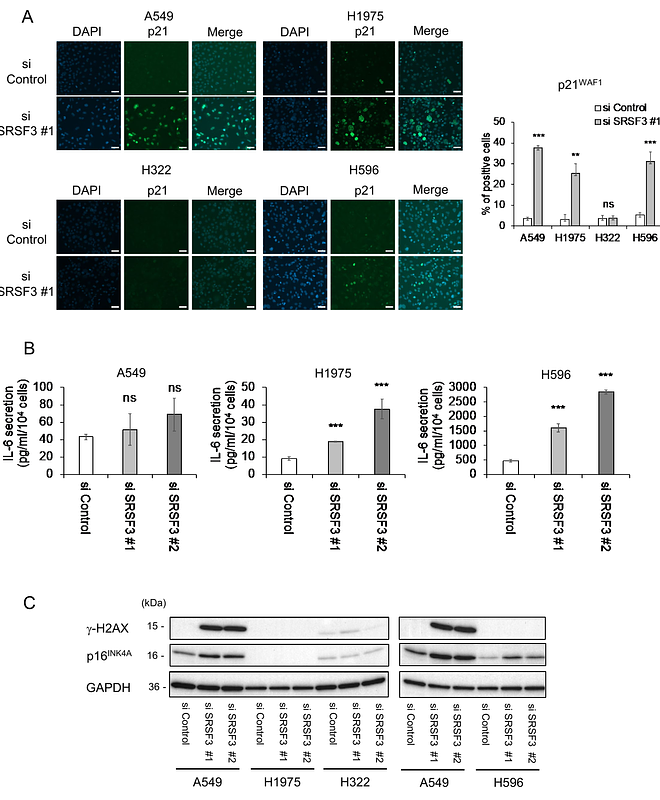SRSF3 knockdown-induced cellular senescence as a possible therapeutic strategy for non-small cell lung cancer

SRSF3 knockdown-induced cellular senescence as a possible therapeutic strategy for non-small cell lung cancer
Nakamichi, S.; von Muhlinen, N.; Yamada, L.; Melamed, J. R.; Papp, T. E.; Parhiz, H.; Weissman, D.; Horikawa, I.; Harris, C. C.
AbstractTyrosine kinase (TK) inhibitors improve clinical outcomes in non-small cell lung cancer (NSCLC) with targetable mutations. However, such NSCLC cases only consist of about 50% in the western populations. This study, for the first time in NSCLC cells including those without a targetable TK mutation, explores a tumor-suppressive activity of siRNA knockdown of a splicing factor SRSF3, which was reportedly effective in other cancer cell types. The knockdown of SRSF3 increased cellular senescence, indicated by senescence-associated {beta}-galactosidase activity and reduced cell proliferation, in all NSCLC cell lines examined, including A549 (no TK mutation; TP53 wild-type), NCI-H1975 (EGFR L858R/T790M; TP53 R273H mutant), NCI-H322 (no TK mutation; TP53 R248L mutant) and NCI-H596 (no TK mutation; TP53 G245C mutant). An increase in apoptotic cleavage of caspase-3 and poly(ADP-ribose) polymerase was also observed in A549 cells. p53{beta}, a tumor-suppressive p53 isoform generated via alternative mRNA splicing, was upregulated by SRSF3 knockdown, as previously reported in normal fibroblasts. However, neither cellular senescence nor apoptosis was increased by overexpression of p53{beta}, suggesting no or minimum contribution of this p53 isoform to the tumor-suppressive activity of SRSF3 knockdown in NSCLC cells. Our gene expression assay indicated that the SRSF3 knockdown-induced senescence in NSCLC cells may be mediated by downregulation of TOP2A, UBE2C or ASPM, which are known to be oncogenic and are associated with poor patient prognosis. We also generated SRSF3 siRNA-encapsulating lipid nanoparticles as a future therapeutic tool. This study suggests a therapeutic strategy for NSCLC irrespective of the mutation status of TP53 and TK-encoding genes.